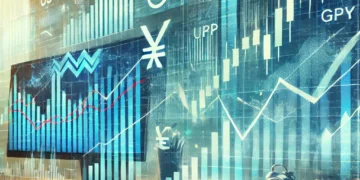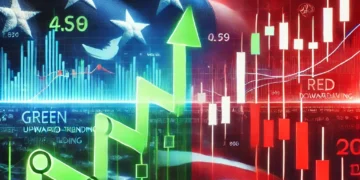Trading vs. Gambling: Strategic Investment or Risky Bet?
Introduction
The comparison between trading and gambling is frequent in popular discourse, often sparking heated debates among professionals, investors, and the general public. At first glance, trading in financial markets might resemble gambling as both involve risk and uncertainty with the potential for financial loss or gain. However, when conducted knowledgeably and strategically, trading is fundamentally different from gambling. This essay will explore the common misconceptions that liken trading to gambling, outline the key differences, and discuss the pros and cons of trading when approached with a disciplined strategy.
The Perception of Trading as Gambling
Trading is often perceived as gambling due to the inherent risks involved in buying and selling stocks, commodities, forex, and other financial instruments. The fluctuating markets can sometimes make outcomes appear as unpredictable as a roll of the dice. Media portrayal of overnight millionaires or significant financial losses can also reinforce this perception, highlighting stories of fortune or ruin which mimic gambling’s high stakes.
Why Trading Is Not Gambling
At its core, trading involves analysis, education, and strategic execution, distinguishing it from gambling’s reliance on pure chance.
Strategic Planning and Analysis
- Risk Management: Traders employ sophisticated risk management techniques to limit potential losses, such as stop-loss orders and portfolio diversification.
- Technical and Fundamental Analysis: Traders use these analytical tools to make informed decisions based on market conditions, economic indicators, and company performance, rather than mere speculation.
Informed Decision-Making
Unlike gambling, where outcomes are largely determined by luck, trading decisions are based on accessible market data and economic theories. Traders invest time in understanding market trends, historical data, and financial models, which guide their transactions and strategies.
Regulatory Environment
Trading is conducted within a regulatory framework designed to protect investors and maintain market integrity. This structure ensures transparency and fairness, contrasting sharply with the often unregulated nature of gambling.
Pros and Cons of Trading
While trading is not gambling when done correctly, it carries its own set of advantages and challenges.
Pros
- Potential for Significant Returns: With the right strategies, traders can realize substantial profits.
- Liquidity and Flexibility: Markets typically offer the ability to quickly enter and exit positions, providing liquidity that is not available in traditional gambling.
- Control over Investment Choices: Traders can choose from a wide range of assets and diversify their investment to manage risk effectively.
Cons
- Market Volatility: Financial markets can be highly volatile, and without proper risk management, trading can lead to significant losses.
- Emotional Stress: The pressure of active trading can be emotionally taxing, requiring a temperament that can handle rapid changes and high stakes.
- Complexity: Successful trading requires a deep understanding of multiple factors including economic indicators, market psychology, and financial analysis techniques.
Trading, when understood and executed properly, is a methodical process of wealth generation, far removed from the simplistic chance-based nature of gambling. Effective traders arm themselves with education, employ strategic planning, and operate within a regulated system, which collectively differentiate their activities from gambling. These traders are not merely “playing the odds” but engaging in a thoughtful process of risk assessment and management.
While the thrill of trading can sometimes mirror the adrenaline of gambling, the foundational practices are inherently different. Recognizing and respecting these differences is crucial for anyone involved in the financial markets. As we look to the future, understanding these nuances will be essential for educating new traders about the realities of trading versus the misconceptions of gambling.
In summary, trading is a sophisticated and strategic endeavor that, when approached with the right tools and mindset, offers opportunities for both personal and financial growth. By continually educating oneself and adhering to disciplined trading strategies, one can effectively navigate the complexities of the financial markets and achieve long-term success.

























